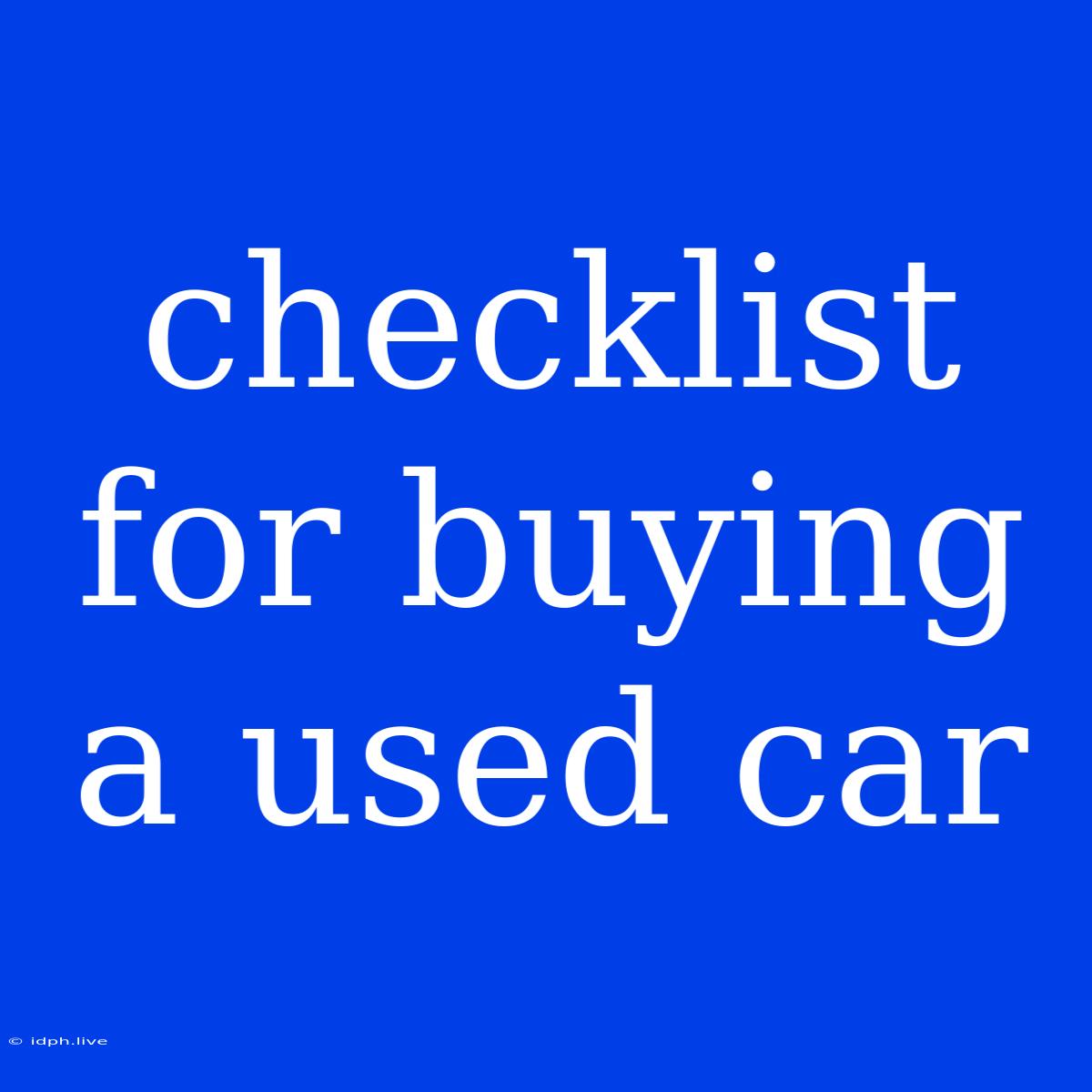Checklist for Buying a Used Car: Ensuring a Smooth Ride
Buying a used car can be a great way to save money and get a good vehicle. However, it's important to be thorough and do your research to ensure you're getting a good deal and a reliable car. Here's a comprehensive checklist to guide you through the process:
Before You Start Looking:
- Determine your needs and budget: What type of car do you need (sedan, SUV, truck)? How much can you afford for the car itself, as well as insurance, maintenance, and potential repairs?
- Research different car models: Read reviews, check reliability ratings (like those from Consumer Reports), and compare prices for the cars you're interested in.
- Get pre-approved for a loan: This will help you know your maximum budget and ensure you're not overpaying for the car.
When You Find a Car You Like:
- Check the vehicle history report: Use services like Carfax or AutoCheck to get a comprehensive history of the vehicle, including accidents, repairs, and ownership history.
- Thorough inspection:
- Exterior: Check for rust, dents, scratches, uneven panel gaps, and any signs of body work.
- Interior: Look for worn upholstery, stains, damaged electronics, and any signs of previous repairs.
- Engine: Start the engine and listen for any unusual noises or vibrations.
- Under the hood: Check for fluid leaks, damaged hoses, and any signs of corrosion.
- Test drive: Pay attention to how the car handles, accelerates, brakes, and shifts.
- Negotiate the price: Use the information you gathered (research, history report, inspection) to negotiate a fair price with the seller.
- Have a mechanic inspect the car: Even if the seller is willing to let you take it to a mechanic, it's a good idea to choose your own trusted mechanic for an independent inspection.
Before You Sign:
- Read the contract carefully: Pay attention to the terms and conditions, including the price, warranty, and any other details.
- Ask about the car's maintenance history: If available, request the service records to see if the car has been well-maintained.
- Get a title check: Ensure the seller has the clear title to the vehicle and that there are no liens or encumbrances.
- Get insurance: Secure car insurance before you drive the car off the lot.
Tips for Finding a Good Deal:
- Buy from a reputable dealer: Look for dealers with good reviews and a long history of customer satisfaction.
- Consider buying from a private seller: Private sellers often offer lower prices, but there is a higher risk involved.
- Be patient: Don't rush into buying the first car you see. Take your time and shop around until you find the right vehicle at the right price.
By following these steps and doing your due diligence, you can significantly increase your chances of finding a reliable and affordable used car. Happy car hunting!

